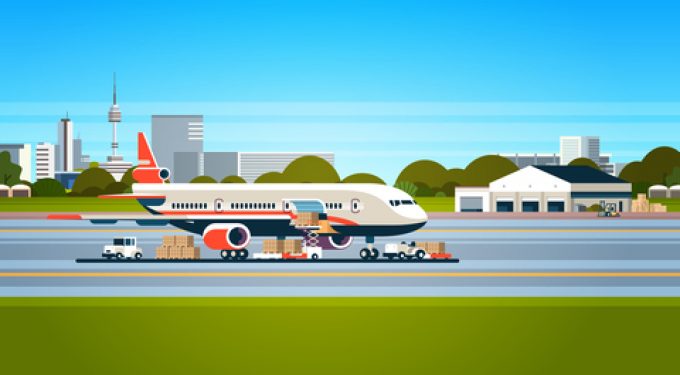Happy last year in air freight (for some) – and good luck with the next
“Airfreight hasn’t been a bonanza for everybody in 2024,” said Niall van de Wouw, chief ...
FDX: ABOUT USPS PRIVATISATIONFDX: CCO VIEWFDX: LOWER GUIDANCE FDX: DISRUPTING AIR FREIGHTFDX: FOCUS ON KEY VERTICALFDX: LTL OUTLOOKGXO: NEW LOW LINE: NEW LOW FDX: INDUSTRIAL WOESFDX: HEALTH CHECKFDX: TRADING UPDATEWMT: GREEN WOESFDX: FREIGHT BREAK-UPFDX: WAITING FOR THE SPINHON: BREAK-UP ALLUREDSV: BREACHING SUPPORTVW: BOLT-ON DEALAMZN: TOP PICK
FDX: ABOUT USPS PRIVATISATIONFDX: CCO VIEWFDX: LOWER GUIDANCE FDX: DISRUPTING AIR FREIGHTFDX: FOCUS ON KEY VERTICALFDX: LTL OUTLOOKGXO: NEW LOW LINE: NEW LOW FDX: INDUSTRIAL WOESFDX: HEALTH CHECKFDX: TRADING UPDATEWMT: GREEN WOESFDX: FREIGHT BREAK-UPFDX: WAITING FOR THE SPINHON: BREAK-UP ALLUREDSV: BREACHING SUPPORTVW: BOLT-ON DEALAMZN: TOP PICK

Airports must be more appreciative of their cargo terminal operations if they are not to be usurped by upstart gateways.
The VP of airline relations and cargo at Dallas Fort Worth (DFW), Milton de la Paz, said despite its cargo terminal generating more than half the airport’s regional economic impact, there remained a disconnect with its wider leadership.
“It took us to tell the board that cargo was responsible for a $20.3bn annual regional economic impact before they paid us any attention,” he told delegates at the World Cargo Summit in Abu Dhabi this week.
He said the lack of attention paid to the cargo sector became apparent during the pandemic, when the cargo terminal was operating at full capacity, but needed updated infrastructure.
The situation is not unique to DFW, he said, with the average age of US airport facilities between 40 and 50 years. And aviation consultant Chris Notter questioned whether airports cared.
“If airports take things seriously, [cargo] could be huge for them but it requires a focus on people, profit, and planning,” he said.
Echoing the views of Tiaca director general Glyn Hughes, Mr Notter said there needed to be much more attention paid to training and making the industry an attractive one for the next generation of employees.
He said there was also work to be done when it came to resource management, urging “real digitisation and modernisation” – but he suggested there were signs it could, and would, happen.
“Covid showed how airports can work properly when they engage all points within the chain and act collaboratively. Rather than ignoring the value of this sector, the wider industry can help this shift by refusing to accept mediocrity,” he added.
“Customers want consistency and transparency and, if we continue with individual players focusing on their own agenda, outside actors will affect the field of play.”
Mr de la Paz noted that the necessary changes would require outlay, but questioned who, if anyone, was willing to pay for this, stressing that airports would not be able to achieve the required changes alone.
Former Liege Airport commercial director and founder of consultancy firm FB Cargo Strategy, Steven Verhasselt, said any change had to focus on the needs of cargo owners.
“There is a long way to go when looking at airports in terms of making the improvements that cargo owners are looking for, but improving reliability is undoubtedly the most important thing to get right,” said Mr Verhasselt.
“But with most airports government owned, or heavily embedded within the community, it is important to re-emphasise their importance if change is to happen.”
Comment on this article